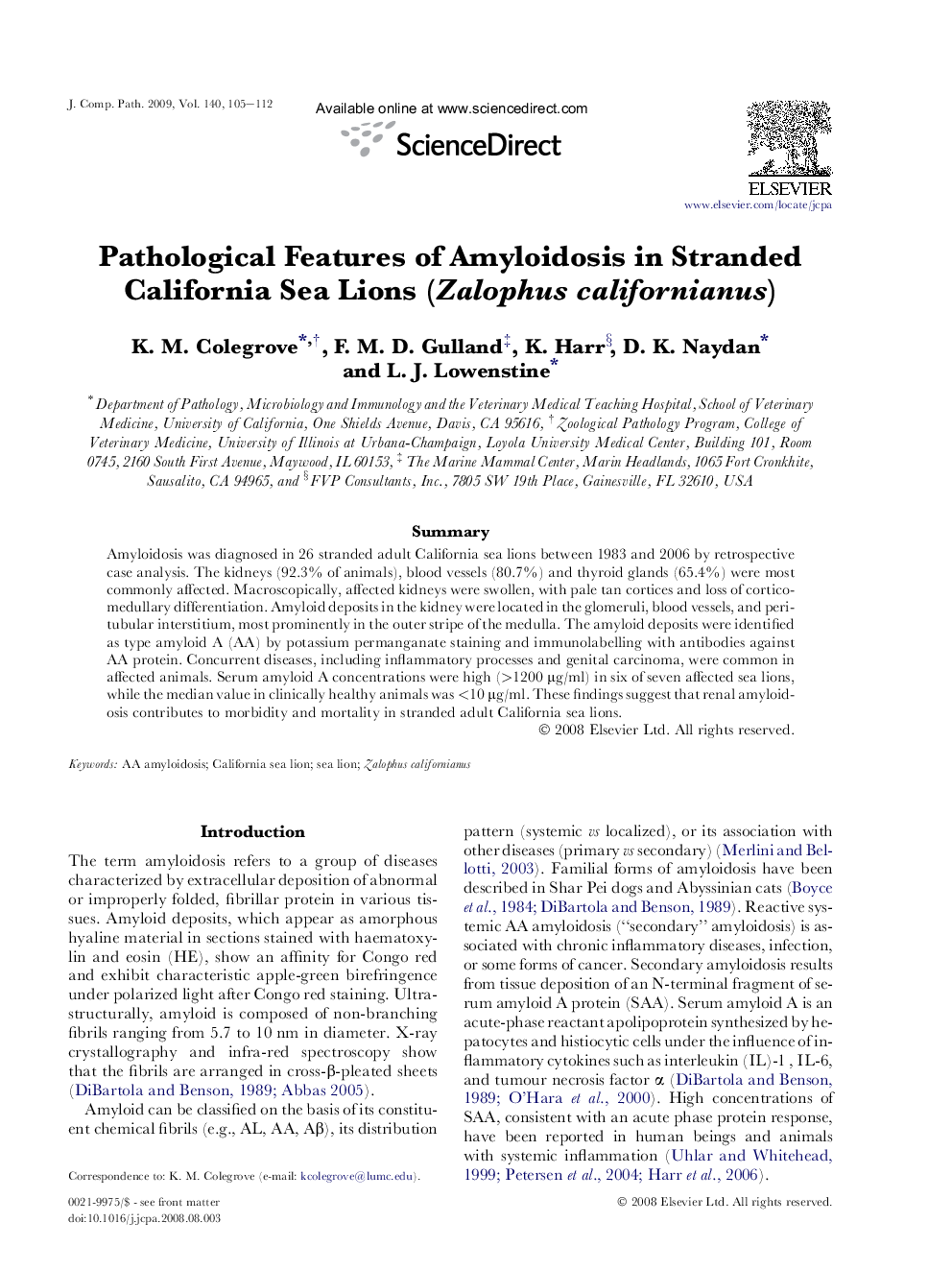| Article ID | Journal | Published Year | Pages | File Type |
|---|---|---|---|---|
| 2438444 | Journal of Comparative Pathology | 2009 | 8 Pages |
SummaryAmyloidosis was diagnosed in 26 stranded adult California sea lions between 1983 and 2006 by retrospective case analysis. The kidneys (92.3% of animals), blood vessels (80.7%) and thyroid glands (65.4%) were most commonly affected. Macroscopically, affected kidneys were swollen, with pale tan cortices and loss of corticomedullary differentiation. Amyloid deposits in the kidney were located in the glomeruli, blood vessels, and peritubular interstitium, most prominently in the outer stripe of the medulla. The amyloid deposits were identified as type amyloid A (AA) by potassium permanganate staining and immunolabelling with antibodies against AA protein. Concurrent diseases, including inflammatory processes and genital carcinoma, were common in affected animals. Serum amyloid A concentrations were high (>1200 μg/ml) in six of seven affected sea lions, while the median value in clinically healthy animals was <10 μg/ml. These findings suggest that renal amyloidosis contributes to morbidity and mortality in stranded adult California sea lions.
